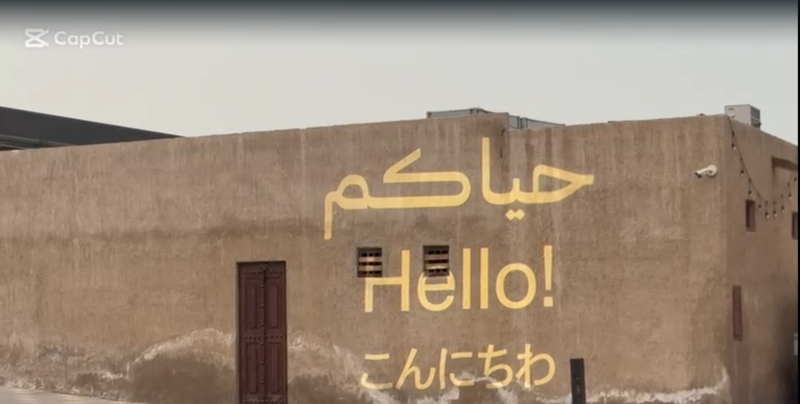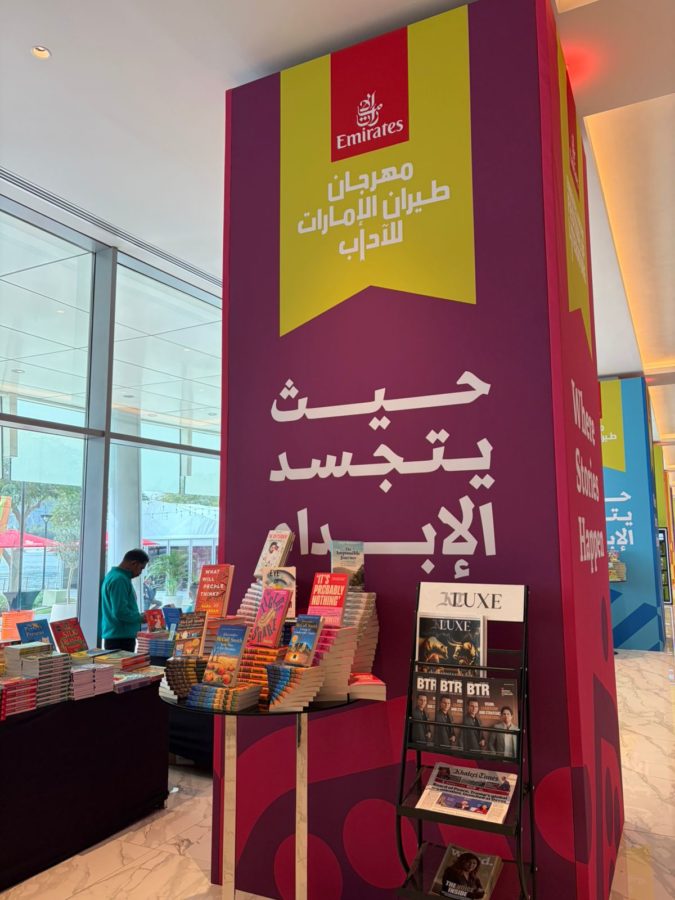Al Hannouneh Brings Palestinian Folklore to AUD Auditorium

Photo: Nada Nawaf
Under the slogan of “The sky is our limit and Palestine is its compass”, Al Hannouneh Society for Popular Culture brought to the American University in Dubai a live performance on Saturday showcasing the rich Palestinian heritage that a whole nation is battling to preserve.

In front of an enthusiastic audience at the AUD auditorium, the Amman-based band performed folkloric dances and songs that portray traditional Palestinian scenes of farmers and fishermen before the creation of Israel in 1948. “My Homeland,” “I Write Your Name, My Country” and “The Land Speaks Arabic,” were three songs that hyped up the audience.
Dressed in traditional outfits, the band offered not only an overview of the lives of different generations of Palestinians but also an interesting introduction to the various dialects once spoken in some villages that have been erased from the map.
Al Hannouneh Society was created in 1993 to preserve and promote the Palestinian cultural heritage among young people living outside their homeland — mostly students from schools and universities. It has performed in the United States, France and across the Middle East.
Al Hannouneh’s performance is based on the “important heritage” left by those Palestinians who fled to Jordan in 1948, says the group’s secretary general, Nemat Saleh. And even if financial resources are sometimes difficult to secure, the band has always refused money from foreign countries to make sure it doesn’t get associated with any agenda, she added.
The main objective of hosting the Al Hannouneh band is to “correct the stereotypical image of war that people associate with Palestine and introduce them to the beauty of our country,” said Raseel Amro, the president of the AUD Palestinian Cultural Club, which is helping to organize the event. There seems to be a decrease in interest in Palestinian culture among young Palestinian students and Al Hannouneh’s performances may help to reverse that trend, she said.
For the AUD Palestinian Cultural Club members, there was something special about organizing that event together with the U.A.E.’s Palestinian Business Council. “Everyone worked as a team with pure dedication,” having the feeling that the “event’s success is representing Palestine’s success,” says student Yasmin Issa. Student Hannan Al Kabat says she insisted on joining the organizing team as an act of “resistance against the occupation and a duty towards Palestine.”
In the audience, there was mixed feelings of pride and tears for the loss of the homeland. Waad Barghouthy says she got emotional when she heard the Palestinian national anthem. Muna Abu Bakir confesses having cried during the show which she says has succeeded in portraying the suffering of the Palestinian nation.






